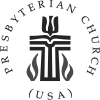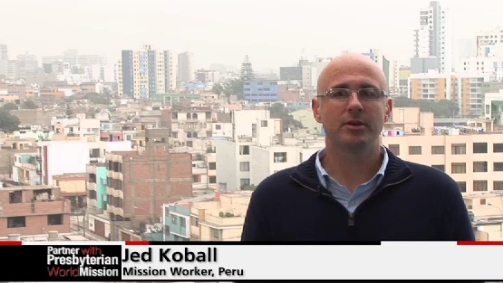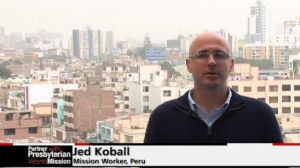The following is a pastoral letter from the new Moderator and Vice Moderator of the 220th General Assembly, as well as Gradye Parsons and Linda Valentine regarding the 220th GA. Please share it with your congregations as you find it helpful to do so.
The letter is also online at the PC(USA) site.
July 7, 2012
To congregations of the Presbyterian Church (U.S.A.)
Grace and peace to you in the name of our Lord and Savior Jesus Christ.
Earlier today, the 220th General Assembly (2012) of the Presbyterian Church (U.S.A.) adjourned after a week of worship and work as the highest council of the denomination. Just under 900 elected commissioners and advisory delegates from every presbytery came from north, south, east, and west to discern together the mind of Christ for the PC(USA).
This assembly’s theme, “walking, running, soaring into hope” (Isaiah 40:31) was a fitting description of the assembly in many ways. At one level, the commissioners worked tirelessly—meeting literally well into the early morning hours today to complete their work—and doing so with much energy and passion. At a deeper level, the deliberations and discernment of this assembly reflect a church that is endeavoring to know how to demonstrate faithfully and effectively the gospel of Jesus Christ in the 21st century.
Some of the highlights:
Worship – The assembly paused daily in the midst of its business, in the same space, to worship. Each of the preachers used the same text, Mark 2:1-12, chosen by outgoing GA Moderator, Cindy Bolbach. Commissioners and advisory delegates prayed and sang often, using selections from the upcoming new hymnal from the Presbyterian Publishing Corporation, Glory to God, which the assembly voted to commend to the church (available in 2013; www.presbyterianhymnal.org).
Community – Those who have experienced a General Assembly speak overwhelmingly of the sense of connectedness that develops over the course of the assembly, and this one was no exception. Group meals, committee work, mission tours, exhibit hall, and more provided opportunities to make new friends and reconnect with those for whom an assembly is a “family reunion.” You can get a sense of that community through the photo and video gallery and more at www.pcusa.org/ga220. The community extended beyond Pittsburgh, as well—thousands gathered in this country and around the world through social media to watch the proceedings (www.twitter.com/search/ga220).
Business – The assembly addressed roughly 800 items of business in the form of overtures, reports, commissioner resolutions and more. We commend to you PC-biz (www.pc-biz.org), the online site where you can read about each item of business. Some topics that were before the assembly are likely to draw media attention—perhaps they already have where you live. We want to highlight some of them, sharing with you the actions taken by the assembly:
- Definition of marriage – The assembly chose not to change the current definition of marriage that is in the PC(USA) constitution, namely, that marriage is a civil contract “between a man and a woman.” Rather, through its action to approve a two-year study, the assembly is inviting the entire church to engage in serious, deliberate conversation on this issue.
- Middle East – The assembly chose not to divest from three companies participating in “non-peaceful pursuits” in the West Bank, East Jerusalem and Gaza. Rather, the assembly voted “to pursue a positive and creative course of action with respect to the current Palestinian/Israeli conflict,” and to “devise a plan of active engagement and projects that will support collaboration among Christians, Jews, and Muslims.” The assembly also approved a boycott on “all Israeli products coming from the occupied Palestinian territories.”
- 1001 Movement – The assembly overwhelming supported a movement to create 1001 worshiping communities (www.onethousandone.org). Those communities of faith will perhaps look much different from traditional congregations, but those that are already underway—in coffee shops, shopping malls, even on bicycles—are changing the world and the church for the sake of the gospel.
Commissioners and advisory delegates wrestled passionately together in heart, mind, and prayer, yet did so respectfully and graciously. Rarely were votes taken that had a wider margin than 60%-40%. On marriage and the Middle East issues, the voting results were extremely close. More than once, commissioners rose with requests to reconsider items already approved.
Obviously, we are working through difficult issues that do not get easily resolved by one or two votes, or even within one or two years. Nevertheless, we stand firmly in the conviction and hope that God is present with us – behind, before, and beside us.
Each assembly committee opened its meeting with prayer and reflection on Paul’s encouragement to the church in Ephesus: “…making every effort to maintain the unity of the Spirit in the bond of peace” (4:3). This is our prayer, as well.
We pray that every effort will be made to continue conversation at every level of the church—from congregations to presbyteries to synods to the General Assembly—encouraging and engaging one another, maintaining the unity of the Spirit in the bond of peace.
May the good and faithful work begun in Pittsburgh continue, remembering that “those who hope in the Lord will renew their strength. They will soar on wings like eagles; they will run and not grow weary, they will walk and not faint” (Isaiah 40:31).
In the name of Jesus Christ our Lord, who is our peace,
The Rev. Neal D. Presa
Moderator, 220th General Assembly
The Rev. Gradye Parsons
Stated Clerk of the General Assembly
The Rev. Tom Trinidad
Vice Moderator, 220th General Assembly
Elder Linda Bryant Valentine
Executive Director, Presbyterian Mission Agency
(formerly General Assembly Mission Council)



